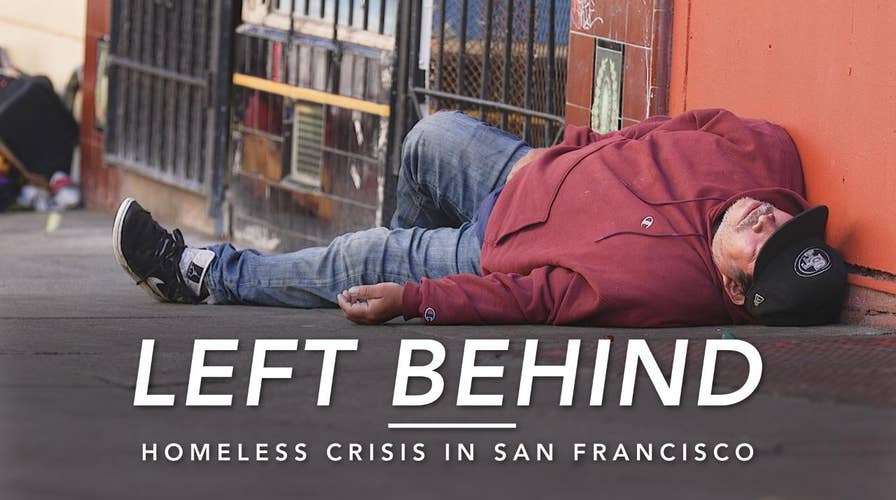Left Behind: Homeless Crisis in San Francisco
In the summer of 2019, Fox News embarked on an ambitious project to chronicle the toll progressive policies has had on the homeless crisis in four west coast cities: Seattle, San Francisco, Los Angeles and Portland, Ore. In each city, we saw a lack of safety, sanitation, and civility. Residents, the homeless and advocates say they've lost faith in their elected officials' ability to solve the issue. Most of the cities have thrown hundreds of millions of dollars at the problem only to watch it get worse. This is what we saw in San Francisco.
Former House Republican Darrell Issa said California's homelessness problem is bad, getting worse and "not getting solved."
Appearing on "America's Newsroom," the former GOP powerbroker told host Jon Scott the homeless crisis is the worst in San Francisco.
“It is a crisis that is growing both because of a lack of affordable housing and because regulatory policies have allowed, if you will, people to camp on the streets, defecate on the streets, and stay on the streets," he said.
In California, homelessness has been rampant across the state and merchants and homeowners have become increasingly vocal. A Sacramento business owner who relocated because of the issue fired at Gov. Gavin Newsom via Twitter, complaining that government inaction forced residents and business owners like her to clean up after the homeless.
‘I AM ANGRY,’ SAYS SACRAMENTO BUSINESS OWNER BEING FORCED TO RELOCATE DUE TO HOMELESSNESS ISSUE
Issa laid the problem at the feet of Democrats, who control the Golden State's governor's mansion, statehouse, two Senate seats and most of the House delegation.
“The mayor of San Diego, who happens to be a Republican, has been trying to get the regulations changed but he’s fighting both his city council and the state that, quite frankly, is tying his hands,” Issa said.
Scott told Issa that several city council members held a conference in June and blamed President Trump.
Issa responded, “They can say it. The reality is that the reason that LA has a problem or San Francisco has a problem is regulatory attraction and, quite candidly, Democratic leadership that hasn’t been dealing with it in an intelligent way.”
“When you pass regulations that won’t even allow the police to deal with people that are defecating on the streets, you’re creating an environment that is inherently adverse to order,” he said.
CLICK HERE FOR THE FOX NEWS APP
Issa went on to say, “We would always have a certain amount of homeless, we would always have people with drug, alcohol, and, quite frankly, mental problems, but we’re not dealing with them as individuals now, we’re dealing with them in a broad institutional way in which we warehouse them and but we don’t treat them.”









































